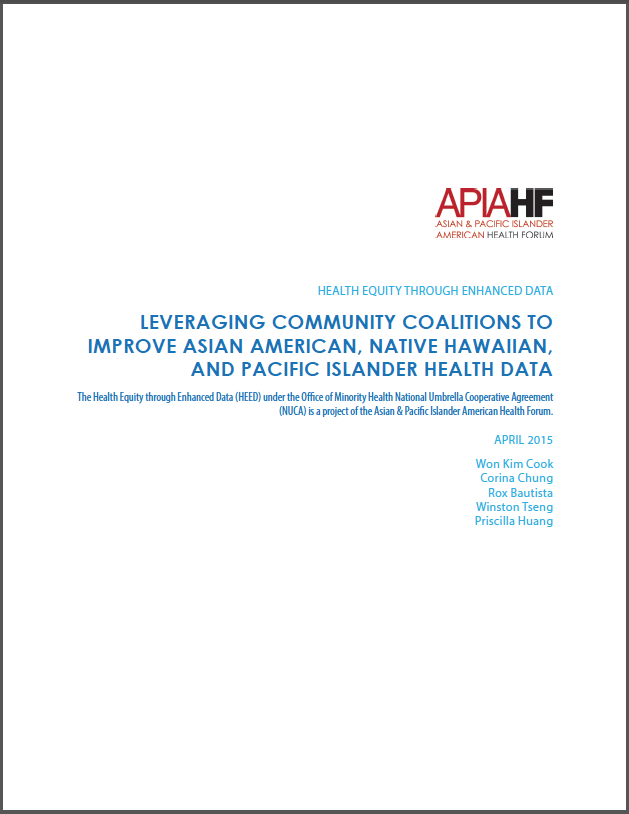BACKGROUND AND OVERVIEW
According to the 2010 decennial Census, there are 18.2 million Asian Americans, Native Hawaiians, and Pacific Islanders in the United States, yet relatively little is known about the health and health access issues affecting these communities. The need to collect more baseline data on minority health to guide interventions and health promotion programs has been well established (Smedley et al., 2003)DC
The Asian & Pacific Islander American Health Forum (APIAHF) has made concerted efforts to improve data on AA and NHPI health it in recent years, beginning with the convening of the Health Brain Trust, a series of national meetings attended by researchers, government officials, and community advocates to build a national data agenda on AA and NHPI health (APIAHF, 2007, 2008, 2009). Echoing those documented in the literature (Ghosh, 2003; Ghosh, 2009; Islam et al., 2010), key challenges identified from the Health Brain Trust included small sample sizes that do not allow stable statistical estimates and the failure to disaggregate AAs and NHPIs by ethnicity in national health data, which masks greater health needs and disparities among smaller AA and NHPI ethnic groups. Strategies to address these issues were also formulated in these meetings, several of which guided APIAHF’s subsequent work. This work includes the Health Equity through Enhanced Data (HEED) project we report here, which we conducted in collaboration with community partners in five states, Arizona, Georgia, New York, Ohio, and Texas.
This report covers our work in two key HEED components: 1) our review and assessment of currently-available state and local data sources in those five states to evaluate their strengths and limitations; and 2) a synthesis of five case studies our community partners conducted to document their work to improve state and local data on AA and NHPI health in their respective states.
Tell us what you think about this report. Click here to take our survey.

